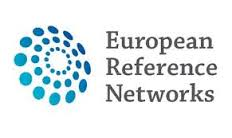Science and research
European Reference Networks

Involvement of the VFN in Prague in the European Rare Reference Networks (ERN)
In March 2016, the European Commission launched the first call for applications for the approval and establishment of the European Reference Networks (ERN). The call was the result of a several-year preparatory process in this area. The main objective of this European initiative is to empower patients and promote high-quality, comprehensive and cost-effective healthcare for patients with rare diseases, in particular through close cooperation between specialized healthcare facilities across the European Union.
For the purpose of this cooperation, individual specialized ERNs are established whose members must be health care providers from min. 8 member countries. The minimum number of network members is 10.
Each ERN must be approved by the European Commission on the basis of applications submitted to the announced call. The application forms an extensive documentation both for the ERN as a whole and for individual medical facilities. The first call was closed in June 2016. The process of evaluation and verification followed several months, which included, in addition to the evaluation of the submitted documentation, on-the-spot audits of selected healthcare facilities. On the basis of a comprehensive set of set criteria, not only the professional level in the specialization was assessed, but also instrumentation and staffing, the quality of the set processes in the organization (eg in the area of information security, quality management, etc.) and the level of cooperation with patient organizations.
In December 2016, a total of 24 ERNs were approved on the basis of the results of the evaluation process. They include 26 countries, over 300 hospitals and more than 900 highly specialized workplaces.
More information about the ERN can be found on the European Commission website:
http://ec.europa.eu/health/ern/policy_en
EC press release: http://europa.eu/rapid/press-release_IP-17-323_en.htm
Clinics and workplaces of the General University Hospital in Prague participated in the first five ERNs in the first call. In addition to experts from clinics, other VFN departments, in particular the European Grants Department, the Quality Department and others, were involved in the preparation of materials. Subsequent audits were conducted without negative findings, and in some cases the multi-stage audit was even more favorable than our self-assessment. All 5 ERNs passed the evaluation process and the VFN was accepted as their member.
This is the following ERN:
MetabERN: Rare Inherited Metabolic Diseases - The IMF involved the DMP in close cooperation with the DDL and the II. and IV. internal clinic, authorized representatives for VFN: prof. MUDr. Viktor Kozich, CSc. and prof. MUDr. Jiri Zeman, DrSc.
RITA: autoinflammatory diseases, pediatric rheumatic diseases and vasculitis in adults and children - the Center for Pediatric Rheumatology and the Center for Inflammatory Diseases at the Clinic of Pediatric and Adolescent Medicine, Center for Immunonephrology at the Clinic of Nephrology, authorized representatives for VFN: MUDr. Pavla Dolezalova, CSc. and prof. MUDr. Vladimir Tesar, DrSc.
ERN-RND: Rare Neurological Diseases - The Department of Neurology, VFN Deputy for the VFN: prof. MUDr. Evzen Ruzicka, DrSc. and doc. MUDr. Jiří Klempíř Ph.D.
ERN-EYE: Rare Eye Diseases - Ophthalmology Clinic, VFN Authorized Representatives: doc. MUDr. Petra Lišková, MD, Ph.D. and MUDr. Bohdan Kousal
ERN-LUNG: Rare Respiratory Diseases - Center for Pulmonary Hypertension (IInd Clinic of Internal Medicine), VFN Authorized Representatives: doc. MUDr. Pavel Jansa, Ph.D. and MUDr. David Ambrož
It is a significant achievement that confirms the high professional level of the VFN workplaces at the local and international level. In the future, active participation in the ERN is a prerequisite for further increasing specialized professional health care and deepening international cooperation, including the possibility of effective sharing of experience. Based on current developments, it can be assumed that the ERN will play an important role not only in the care of patients with rare diseases in the future, but also in research funding and in education and patient empowerment.
